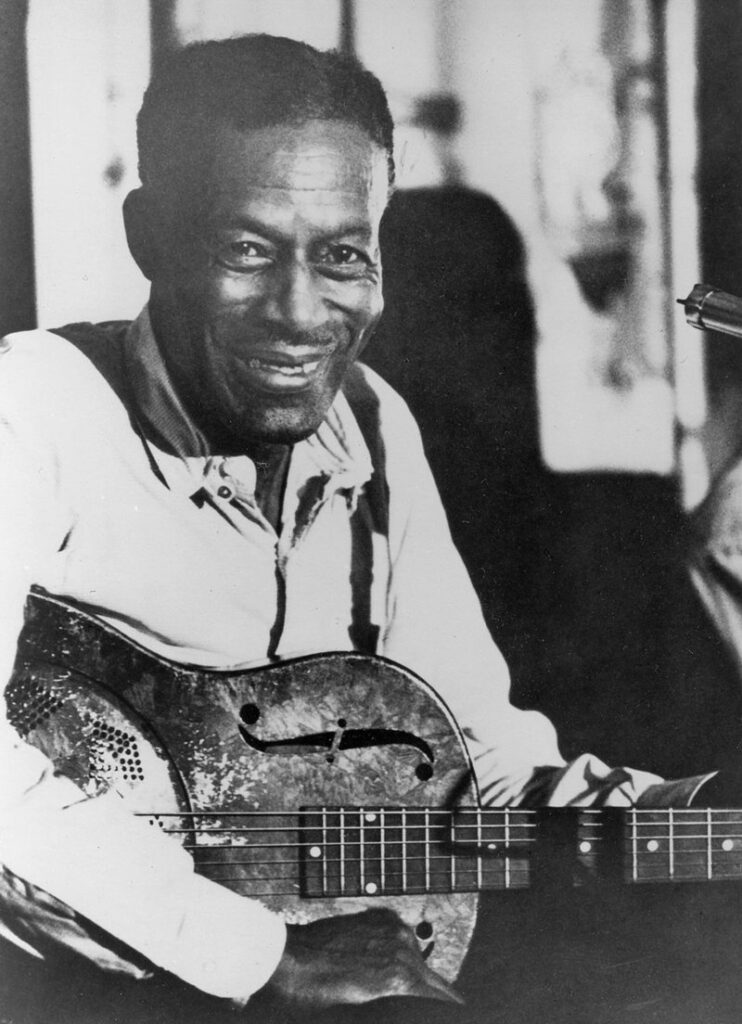Son House, born Eddie James House Jr. on March 21, 1902, in Lyon, Mississippi, was a pivotal figure in the development of the blues. His life story is not just one of music but also of resilience, redemption, and the enduring power of the human spirit.
Growing up in the Mississippi Delta, Son House was exposed to the rich tapestry of African-American music and culture. He learned to play the guitar and the blues from local musicians, soaking in the raw emotion and unfiltered expression that characterized the genre. His early influences included legends like Charley Patton and Willie Brown, whose styles would shape his own musical journey.
In 1927, House made his first recordings for Paramount Records in Grafton, Wisconsin. These recordings, including “My Black Mama” and “Preachin’ the Blues,” showcased his powerful voice and intense guitar playing, laying the foundation for his reputation as one of the most compelling bluesmen of his time.
However, it was his encounter with another Delta blues giant, Robert Johnson, that would change the course of his life and music. Legend has it that House mentored Johnson, teaching him the intricacies of the blues. Whether or not this is entirely true, there’s no denying the profound impact Johnson had on House, inspiring him to hone his craft even further.
Despite his undeniable talent, Son House’s career faced numerous challenges. Personal struggles with alcoholism and a tumultuous lifestyle led to periods of obscurity and hardship. At one point, he even gave up music altogether, working as a preacher in the church.
But the blues were never far from his heart. In the 1960s, during the folk and blues revival, a group of young enthusiasts rediscovered Son House living in Rochester, New York. Among them were musicians like Al Wilson and John Hammond Jr., who recognized the importance of preserving House’s musical legacy.
This rediscovery led to a remarkable resurgence in Son House’s career. He was embraced by a new generation of fans, performing at folk festivals and recording albums for major labels like Columbia Records. His performances were electrifying, imbued with the same raw energy and emotion that had captivated audiences decades earlier.
Son House’s influence extended far beyond his own recordings. His distinct playing style, characterized by slashing slide guitar and passionate vocals, inspired countless musicians, from Muddy Waters to Eric Clapton. His songs, including “Death Letter Blues” and “Grinnin’ in Your Face,” became blues standards, timeless expressions of the human experience.
In 1980, Son House received a National Heritage Fellowship from the National Endowment for the Arts, recognizing his contributions to American music. He passed away on October 19, 1988, leaving behind a legacy that continues to resonate with audiences around the world.
Son House’s life was a testament to the enduring power of the blues, a music born out of struggle and hardship but imbued with a profound sense of hope and resilience. His story reminds us that, no matter how far we may fall, the music has the power to lift us up and carry us through even the darkest of times.


No responses yet